Shilpacharya Zainul Folk and Crafts Museum Sonargoan narayanganj.
Hello Steemit friends,
The Steemit Challenge Season 26 Week 01 Steam-Atlas Challenge has started. I feel honored to be able to participate in this challenge. I start my post by greeting the honorable organizer, @mohammadfaisal Sir. Today I have appeared in a famous museum of Bangladesh. The story of the country and the common people of the country are revealed in every corner of this museum. The famous museum is called Shilpacharya Zainul Folk and Crafts Museum. Today I will visit Shilpacharya Zainul Folk and Crafts Museum and pin this famous museum in the Steam-Atlas map. Let's get acquainted with the museum.
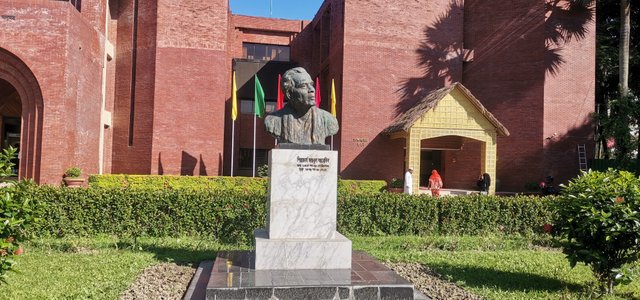
Front side of Shilpacharya Zainul Folk and Crafts Museum
Sonargaon is located in the Narayanganj district, 24 kilometers away from the capital, Dhaka. To develop the folk cultural trend of rural Bengal in a spacious and peaceful environment, and to highlight rural heritage, Shilpacharya Zainul Abedin established the Bangladesh Folk and Crafts Foundation on March 12, 1975, in an old house in historic Sonargaon. Later, in 1981, he built this museum in an open environment to display the artistic activities of the common people, which was created focusing on the nature and environment of Bengal.
The museum has two galleries. Galleries are made of wood, which is rich in ancient and modern artifacts.
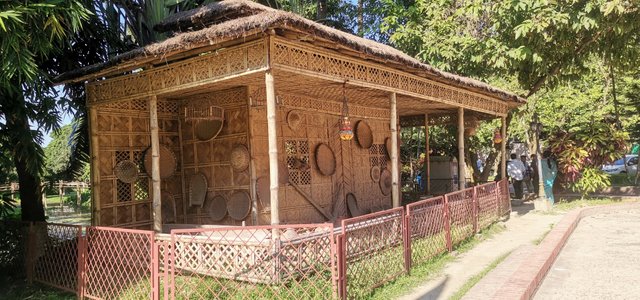
Beautiful Hut in beside of Shilpacharya Zainul Folk and Crafts Museum
The role of Shilpacharya Zainul Abedin, a renowned artist of the country, played a significant role in establishing the museum. This museum was built mainly because of his tireless efforts. Therefore, this museum is named after him.
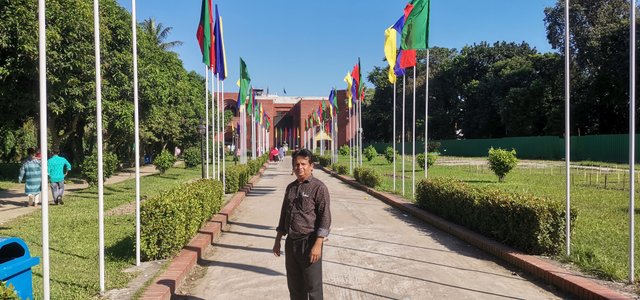
I am in front of Shilpacharya Zainul Folk and Crafts Museum
This museum, made entirely of red bricks, has 3 floors. This beautiful museum carries the heritage of our country.
A statue of Shilpacharya Zainul Abedin has been installed in front of the museum in tribute to him. When we enter the museum, his statue is right in front of our eyes.
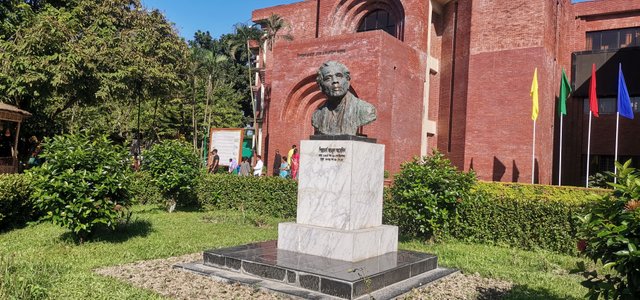
Statue ot Shilpachrya Joinal Abedin
There is a large open space in front of the magic house. There are various types of trees all around. The sound of birds chirping in the trees gives the place a natural atmosphere.
Inside the museum, all the traditional furniture of our country's rural Bengal has been preserved from different parts of our country. Various information, such as the name of each piece of furniture, where it was collected, and the year it was collected, has been recorded with the product.
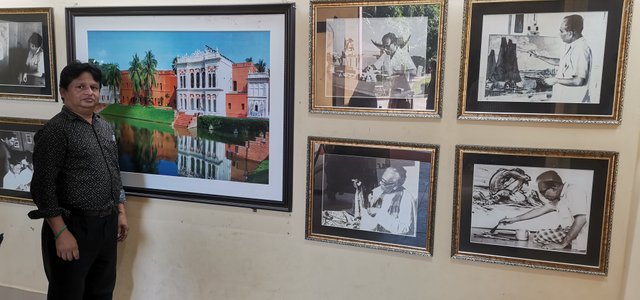
Silpachrya Joinul abedin and his painting
I kept walking around the museum. Times have changed, and with time, people's lifestyles have changed. But we should not forget the history behind us. Remembering this theme, the various livelihoods of the people of rural Bengal have been placed here.
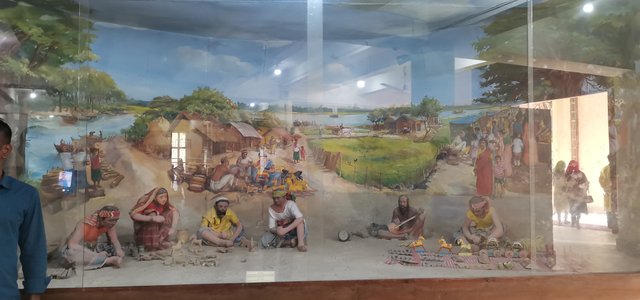
Livelihood of the people of ancient rural Bengal
The invaluable paintings that Shilpacharya Zainul Abedin painted during the famine have also been placed in this museum.
There was a time when everything we used was made of copper and bronze. These priceless things that have been lost due to the change of time can be found in museums.
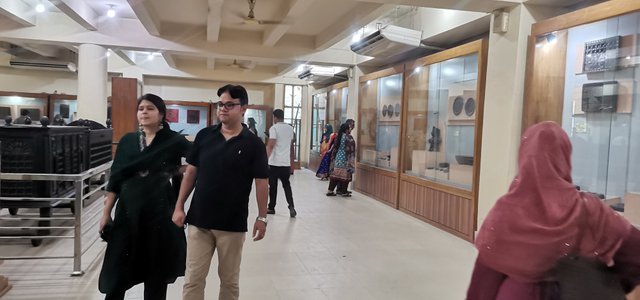
Visitors come here to learn about the country's heritage.
Nakshi Katha is a traditional art of our country. Nakshi Kantha is still highly valued. We can see many pictures of that NakshiKatha in the museum. Not only that, but we can also know the artistic history of Jamdani sarees when we come here.
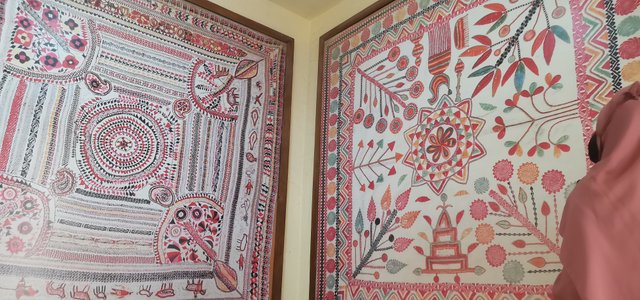
Famous nakshikatha in the Museum
Once upon a time, a palanquin was one of our means of transportation. Especially the women of the house would not leave the house without a palanquin; now you will not find the existence of a palanquin anywhere. This is also a traditional sign of our country; it has been preserved here for the education of future generations.
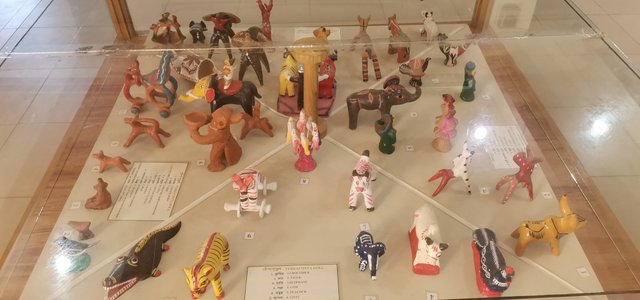
Traditional clay toy dolls of rural Bengal
We cannot forget about various toys made of clay. Especially during the New Year of the country, various toys made of clay were made. There was no greater gift than this to give joy to small children. Those toys have also found a place here.
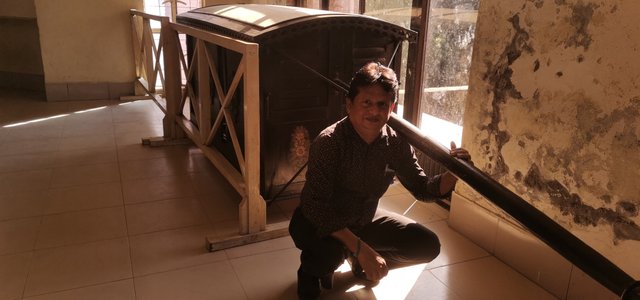
Me with the traditional lost palanquin
The landlords of the ancient period used to use various types of beautiful furniture, not a single fragment of which can be seen anywhere now. The drinking vessels they used, hookahs, betel nut cutters, and other furniture have all found a place in this museum.
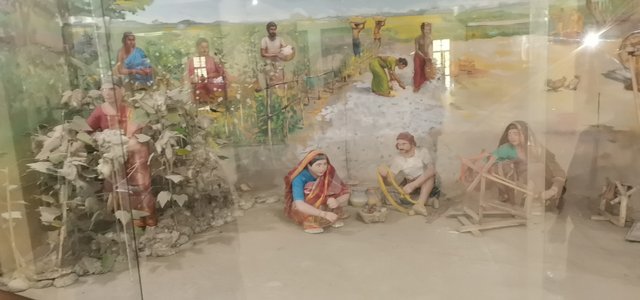
A reflection of some of the livelihoods of rural people.
Although sailing boats are not often seen now, there was a time when sailing boats were one of the means of transportation. I see some models of that boat in the museum. Not only that, a whole sampan boat has been placed outside the museum. Many songs and poems have been written about this sampan boat, and today that boat has a place in the museum.
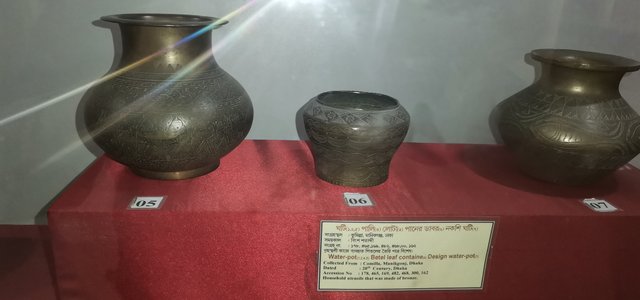 | 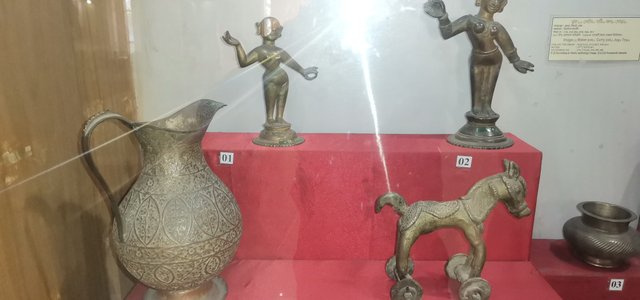 |
|---|
Some items made of ancient brass
In ancient times, landlords and kings lived a very luxurious life; they spent a lot of their time in music and gold. Many musical instruments of that time have found a place in the museum.
Dula Kula, Kopi candle holders, Cheragdani lids, spoons, sieves, and many other items of that time have been placed here, which cannot be ended.
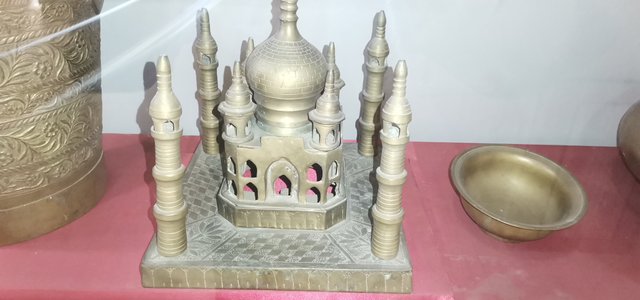 | 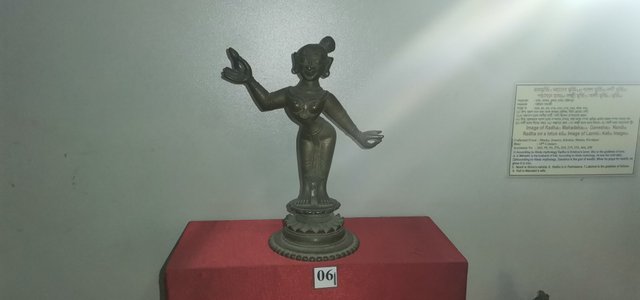 |
|---|
Some more items made of ancient brass
The museum is meant to showcase ancient traditions, so it is an ideal museum. Ancient women liked to wear various ornaments. Among them were women's waistbands, necklaces, and keys that we can see here.
The museum is equipped with CCTV cameras for security. The movements of each visitor are monitored. Also, people have been appointed to help people coming here.
There is no restaurant inside the museum, but as you exit the museum, you will find restaurants and fast food outlets. Healthy food is available at these outlets.
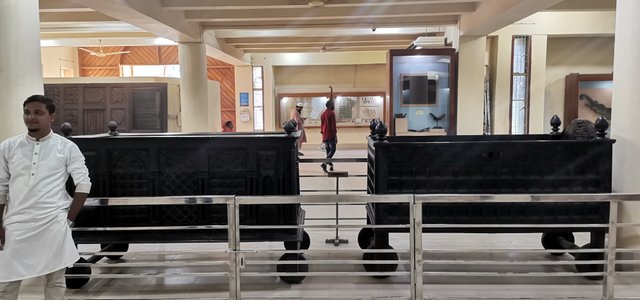 | 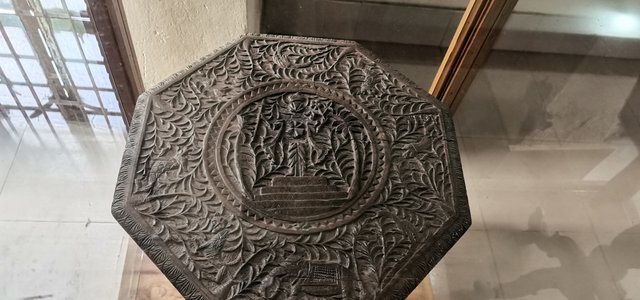 |
|---|
Beautifully designed wooden furniture
Hundreds of visitors flock here every day. It is open for visitors from 9 am to 5 pm every day. The museum is closed every Thursday.
Visitors come from far and wide to visit the museum. There is a beautiful parking facility for parking their cars.
To enter the museum, you have to buy a ticket. Which is 50 taka or 3.03 steem for locals, but 200 taka or 12.12 steem for foreigners.
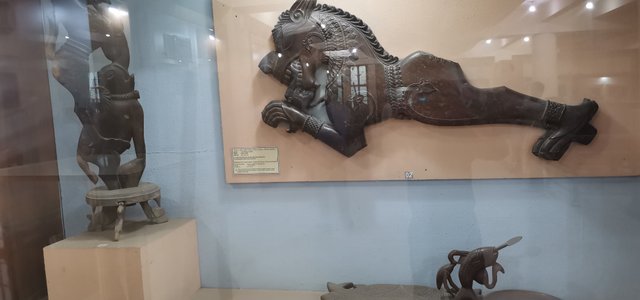 | 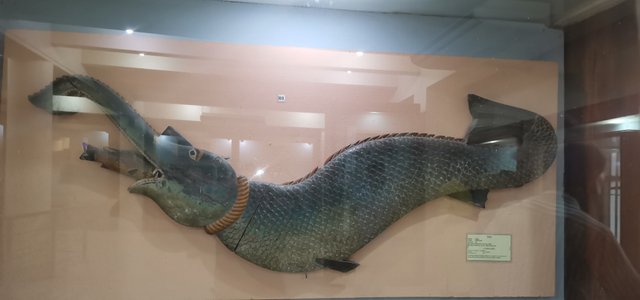 |
|---|
Another beautiful image of ancient bangla
💁♂ Location on Steem Atlas map :[//]:# (!steematlas 23.64872936 lat 90.60150281 long Zainul Folk and Crafts Museuminul Sonargoan Narayanganj. d3scr)
Some important information about the museum
| Founder | Shilpacharya Zainul Abedin |
| Managed | Ministry of Culture |
| First established | March 12, 1975 |
| Reconstruction | 1981 |
| Google Map | Link |
| Website | Link |
| Source | Link |
| Open | 9.00 am -5.00 pm |
| Location | Narayanganj district |
| Closed | Thursdays |
| Car parking | Yes |
| Cleanliness | Yes |
| Washroom | Yes |
| Security | Good |
| CCTV Camera | Yes |
| Entrance ticket-local | 50 taka or 3.03 steem |
| Entrance ticket foreigners | 200 taka or 12.12 steem |
| Visit | November 08.2024 |
I invite three of my friends to join in this contest
@mahadisalim
@artist1111
@sojib1996

Hi @shahid76!
The website link you have shared is incorrect. I have previously guided you about this but you did not understand.
https://mobiletips.in/MT1.php/?q=www.shilpo%20charye%20joinul%20abedin%20museum
@mohammadfaisal sir, thank you so much for visiting my post. According to your advice, I edited my website. Pls check the website, and thanks again for allowing me to edit the post.
My twitter link
https://x.com/ShahidU27358003/status/1955311659611807746?t=KIhHYUeQEPv7rbK_7n6IMQ&s=19